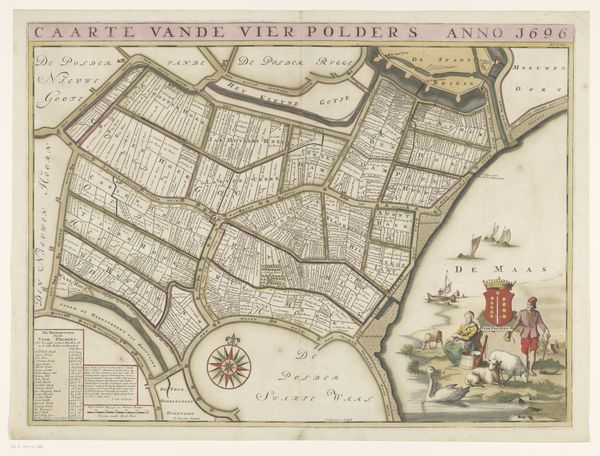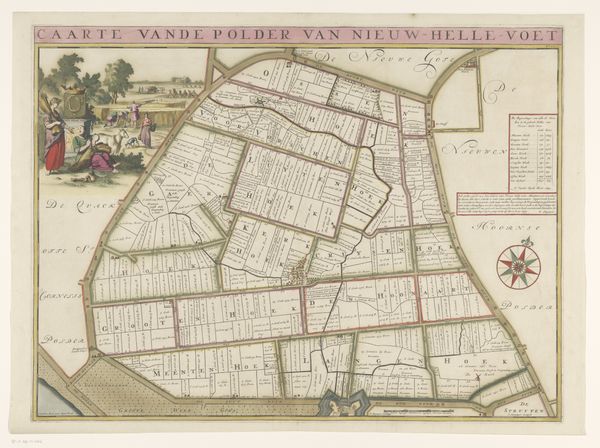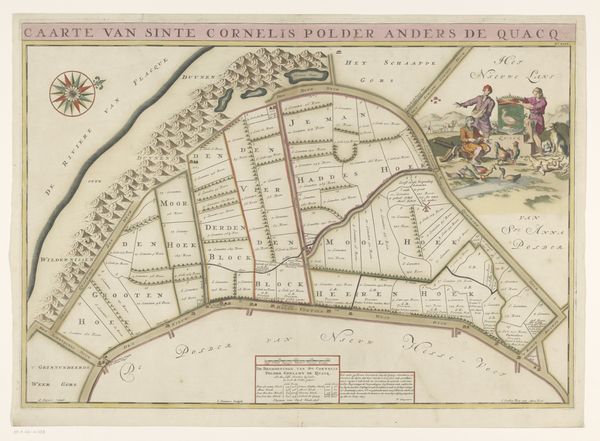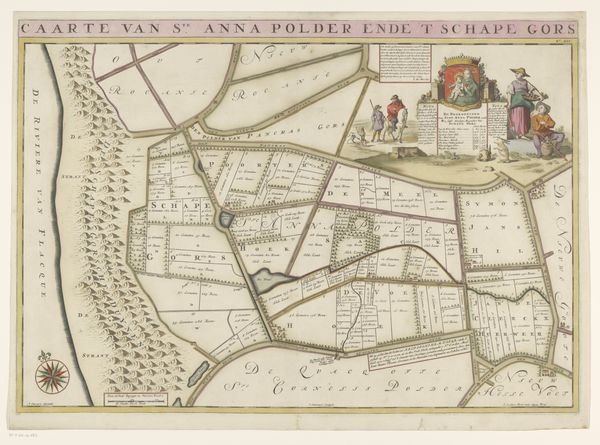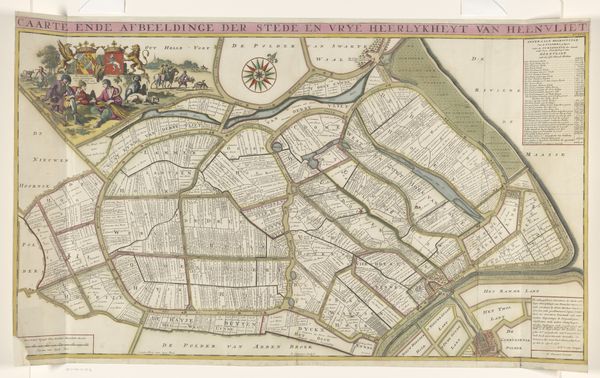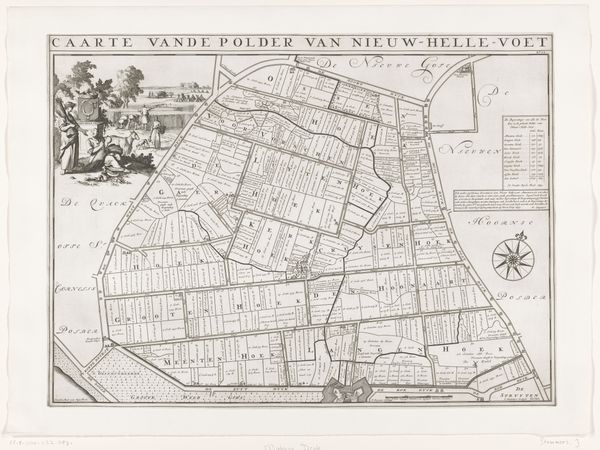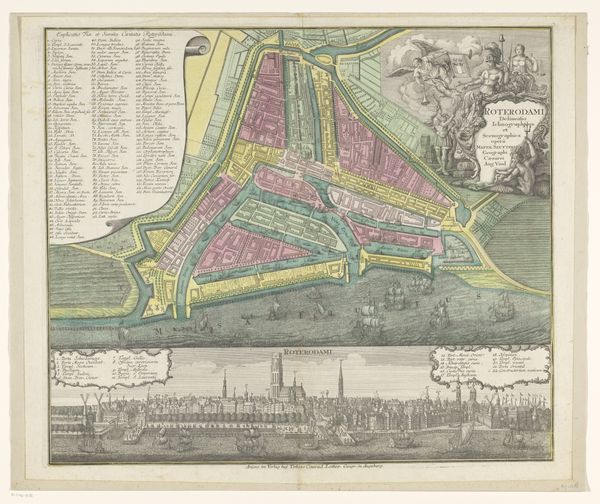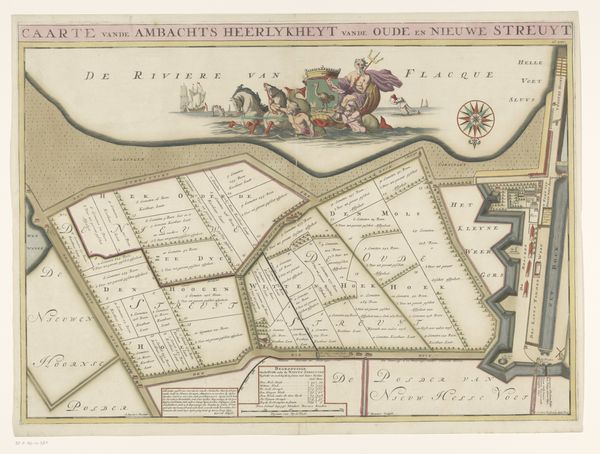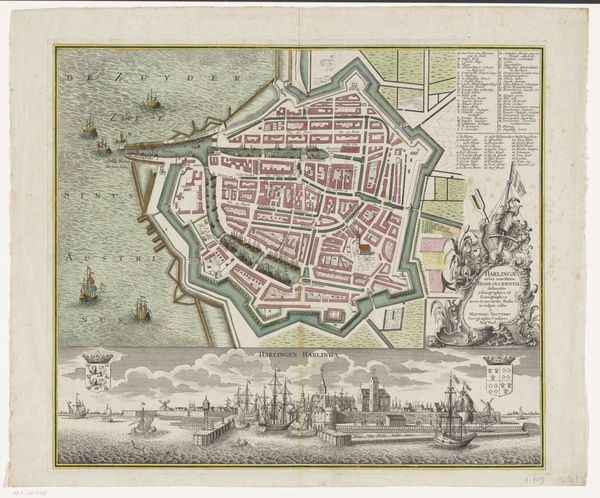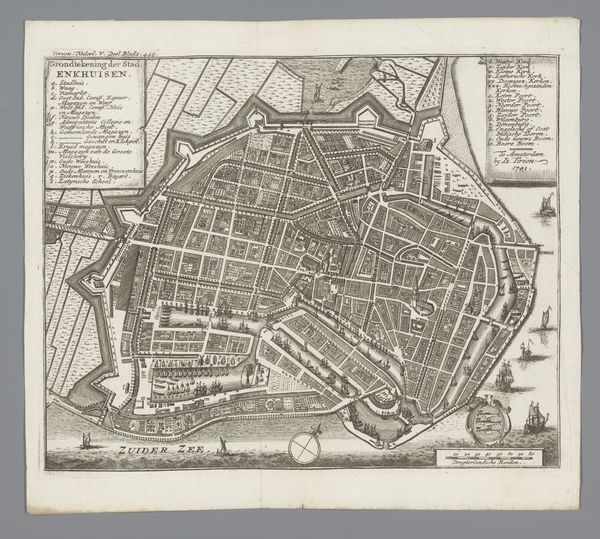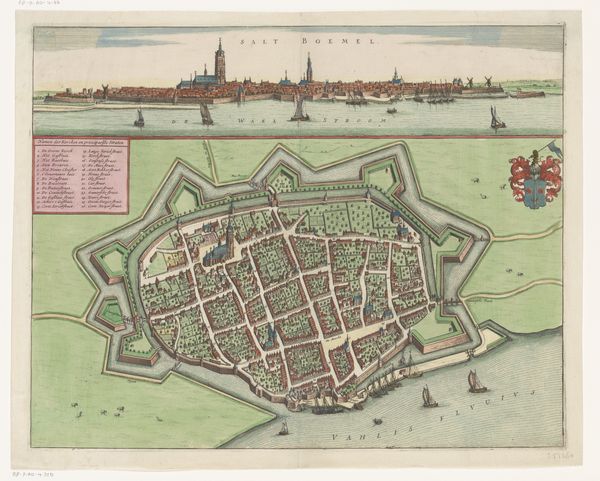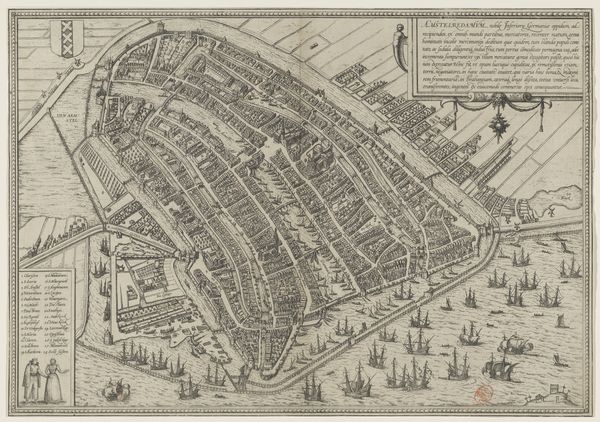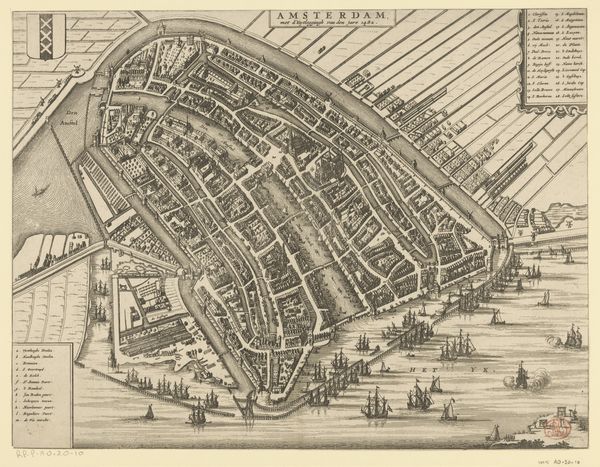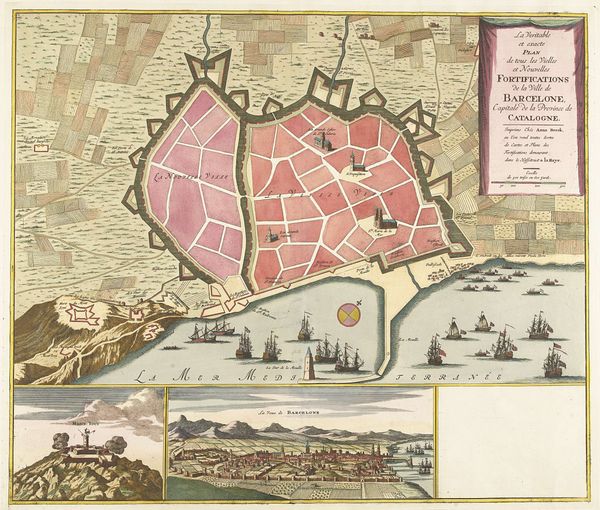
print, engraving
#
dutch-golden-age
# print
#
old engraving style
#
landscape
#
engraving
Dimensions: height 509 mm, width 685 mm
Copyright: Rijks Museum: Open Domain
Editor: This is a fascinating engraving titled "Kaart van de polder Zwartewaal," or "Map of the Zwartewaal Polder," dating sometime between 1701 and 1729, by Jan Stemmers. The detail is incredible, and the stylized presentation is very striking. What significance do you think this map holds, viewed through a historical lens? Curator: This map provides invaluable insight into the social and economic landscape of the Dutch Golden Age. Polders, reclaimed land, represent a triumph of engineering and a major source of wealth. Note how meticulously each parcel is demarcated and likely owned, representing a significant social structure based on land ownership. What's captured in these lines is the physical embodiment of power, class and societal ambition during this era. Editor: That’s really interesting. So it’s not just a practical guide but also a political document of sorts? Curator: Precisely. Consider also the inclusion of the figures to the right, likely local notables or representatives of the polder's administration. Their inclusion signals who holds authority and benefits from this controlled environment. How does that symbolic inclusion change your perception of the print? Editor: It definitely reinforces the idea that this map is about more than just geography. It’s presenting a very specific vision of control and ownership. I hadn't considered how directly involved cartography could be with the politics of representation! Curator: And consider that this "objective" map would've served very specific social purposes - legitimizing land claims, reinforcing social hierarchies, even celebrating the progress of human modification to the natural environment. That really speaks to the relationship between art, power and perception, don't you think? Editor: Definitely! Seeing it as a tool within a larger socio-political context is a completely different perspective. Thanks!
Comments
No comments
Be the first to comment and join the conversation on the ultimate creative platform.
